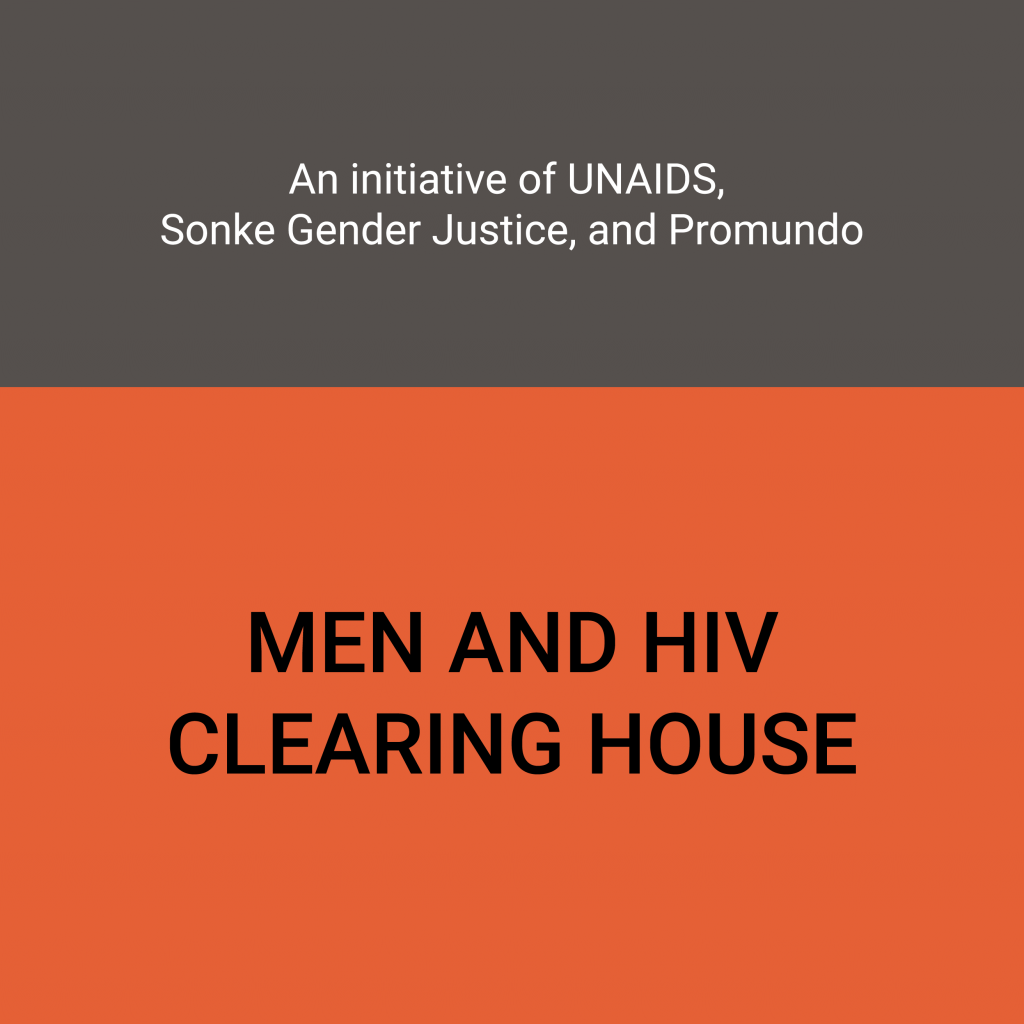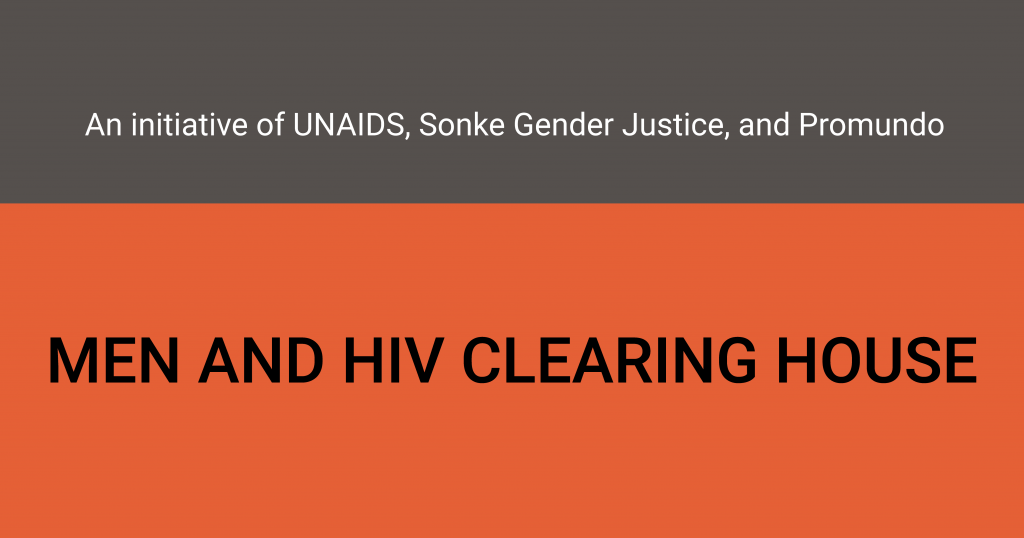With the support of UNAIDS, Sonke Gender Justice and Equimundo launch a new online portal on men and HIV to accelerate action on gender equality and support global efforts to increase men’s use of HIV services.
Sonke Gender Justice and Equimundo are excited to launch a new online resource developed with support from UNAIDS: a web-based portal on men and HIV. The portal contains up-to-date research and data on the state of men’s HIV access to and utilization of HIV services, men’s health outcomes, and a comprehensive set of resources on how to best engage men in the HIV response—for the sake of men, their partners and families, and for public health.
In launching the men and HIV portal Aeneas Chuma, UNAIDS Director a.i. for Eastern and Southern Africa, says: “Attention to men in the HIV response is needed urgently. Men’s poor HIV outcomes are bad for everyone. When men do not know their HIV status and are not on treatment they are more likely to transmit HIV to their sexual partners. When they get sick it is usually their partners, especially women and girls, who take care of them. When men die, their partners, families and communities grieve them.”
The portal features research and data showing that men are much less likely to get tested, access treatment, or achieve viral suppression than women are, men are over-represented in new infections and their rate of HIV acquisition is declining more slowly than women’s, men are 70 percent more likely to die of AIDS than women are, and their rate of death is declining much more slowly.
For the global HIV and AIDS response to be effective, greater attention must be paid to addressing the crisis of men’s and boys’ HIV outcomes, within the broader prevention and response efforts. The portal will support and inform public health researchers, policy analysts, health care providers and civil society advocates eager to take action to engage men to promote equality and improve health outcomes for all.
The portal points to two major strategies for getting men into HIV services and improving health outcomes for all: 1. Challenging harmful gender norms; and 2. Improving health system policies, programs, and service delivery strategies. It provides a rich set of resources to advance these strategies, including journal articles, key reports, and literature reviews.
Mabel Sengendo, Regional Programmes Manager at South Africa-based Sonke Gender Justice points to the importance of engaging men to transform harmful and inequitable gender norms. She says, “We now know quite a lot about how to challenge restrictive gender norms that compromise both women and men’s health, including what sorts of interventions are effective at increasing men’s support for gender equality and reducing the likelihood that men acquire or transmit HIV. To effectively address women’s and girls’ vulnerabilities to HIV, and to improve men’s HIV-related outcomes, we must implement far more ambitious interventions aimed at advancing gender equality and improving men’s access to HIV services.”
Sengendo affirms that the portal will be a resource for reaching men in all their diversity. She says: “It is critical to reach men facing multiple layers of marginalisation and stigma, including discriminatory laws and policies, who may struggle to access health services, such as people who inject drugs, men in prisons, men who have sex with men, men who sell sex, migrant and refugee men, young men, and others who face legal and de-facto discrimination.”
Dean Peacock, Senior Advisor for Global Advocacy at Equimundo believes the portal will also assist those trying to understand the health-system challenges that contribute significantly to men’s low levels of uptake for HIV-related services and how to address them. He comments: “Health policies and systems seldom include a clear focus on how to get men into HIV services. When they do, men are far more likely to get tested and start treatment. The men and HIV portal provides state of the field evidence on what works to get services to men and should be a valuable resource for anyone working to improve men’s HIV outcomes.”
After years of relative inaction on men and HIV, the portal is intended to support and amplify all the good work now taking place to get men into HIV services and to engage men to transform gender norms and promote gender equality.
Access the portal directly, here: www.menandhiv.org
For questions or comments please contact:
Sonke Gender Justice: Angelica Pino, angelica@genderjustice.org.za
Equimundo: Dean Peacock, Senior Advisor for Global Advocacy, d.peacock@
UNAIDS: Christoforos Mallouris, Senior Adviser, Community Support, mallourisc@unaids.org

